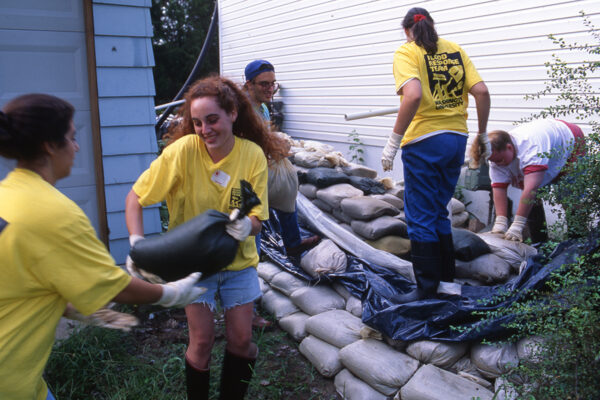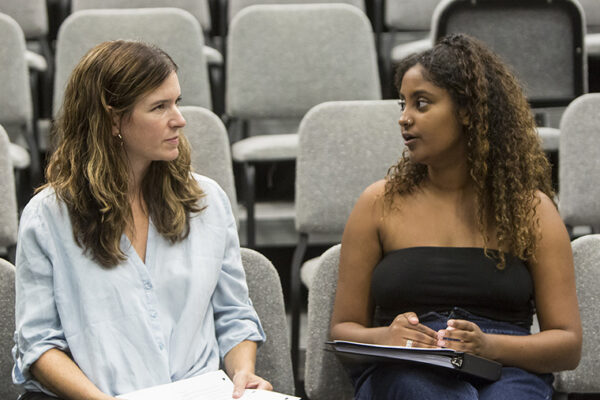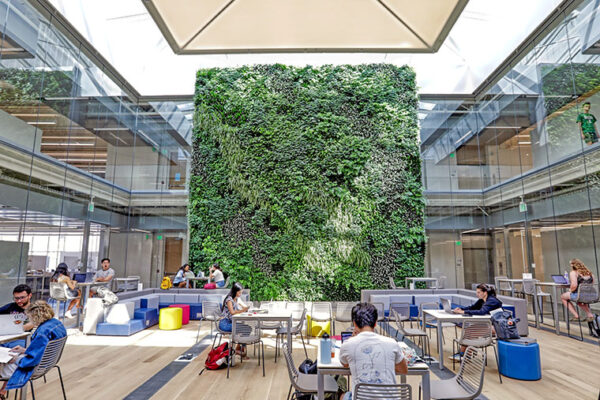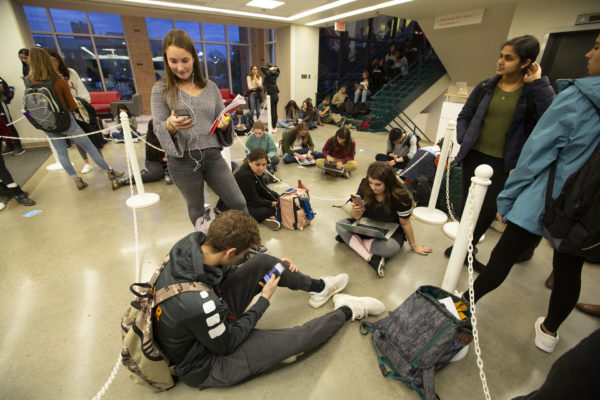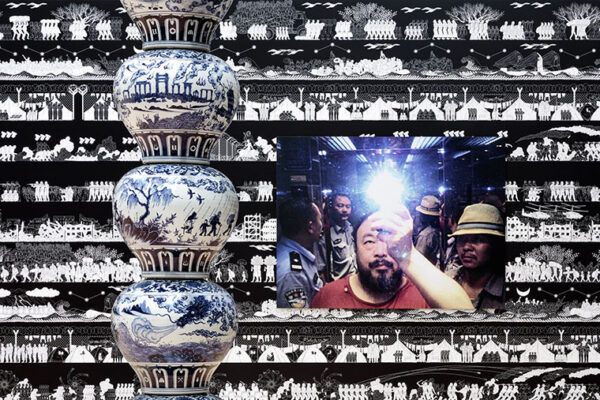NIH funds centers to improve, diversify reference human genome
The National Institutes of Health (NIH) will provide $29.5 million to Washington University School of Medicine in St. Louis and collaborating institutions to improve the accuracy and diversity of the reference human genome sequence. The aim is to better reflect the spectrum of human diversity and make the reference genome a more useful research tool.
‘Momentum’ exhibit opens at Olin Library
The new exhibit “Momentum: Bridging Past, Present, and Future,” showcases the faculty, staff and students who served St. Louis, led the way for educational access and equality and were committed to academic excellence. The exhibit is on view from Saturday, Sept. 28, until Dec. 15 and is located in John M. Olin Library’s Kagan Grand Staircase lobby.
Workplace theft is contagious (and strategic)
Three Olin Business School researchers completed a study of workplace theft among restaurant workers that details, for the first time, how such stealing is contagious — and new restaurant workers are particularly susceptible.
Inside the Hotchner Festival: Sophie Tegenu
In “Mrs. Kelley’s Igloo,” senior Sophie Tegenu explores themes of family, romantic love and the difficulties of saying “I do.” This weekend, the play will be one of three to receive world premier staged readings as part of the Performing Arts Department’s annual A.E. Hotchner Playwriting Festival.
WashU Spaces: Kuehner Court
More than 5,000 plants form a literal wall of green that rises 30 feet in the air. Welcome to the Kuehner Court, located in the Sam Fox School of Design & Visual Arts’ new Anabeth and John Weil Hall. The new space will be dedicated Oct. 2 as part of Washington University’s east end dedication.
Another golden moment on Francis Field
Francis Field, the venerable stadium on the Danforth Campus of Washington University in St. Louis, was re-dedicated Sept. 21 as Francis Olympic Field. The new name is sanctioned by the International Olympic Committee and the U.S. Olympic and Paralympic Committee, represents another milestone in securing Washington University’s — and St. Louis’ — legacy in the Olympic movement.
Impeachment ball in Senate’s court
Whatever impeachment moves the Democratic-majority U.S. House of Representatives makes next, it’s ultimately up to the Republican-controlled and administration-friendly Senate to hold a trial on the matter — and Washington University in St. Louis political scientist Steve Smith anticipates the Senate could make a number of moves to avoid the issue.
University student turnout spiked in 2018 midterm elections
Voter turnout among Washington University in St. Louis students leaped to 41.8% in the 2018 midterm elections, more than double the 2014 midterm voting rate of 15.9%, according to a national study of campus voting rates by Tufts University’s Institute for Democracy & Higher Education.
Finding new uses for old water
Working with other academic, government, and research institutions, Washington University in St. Louis to help develop desalination technologies and find new uses for old water.
‘Ai Weiwei: Bare Life’ opens Sept. 28
The newly expanded and renovated Mildred Lane Kemper Art Museum will reopen to the public Sept. 28 with “Ai Weiwei: Bare Life,” a major exhibition collecting dozens of artworks by the renowned Chinese dissident artist and activist.
View More Stories

